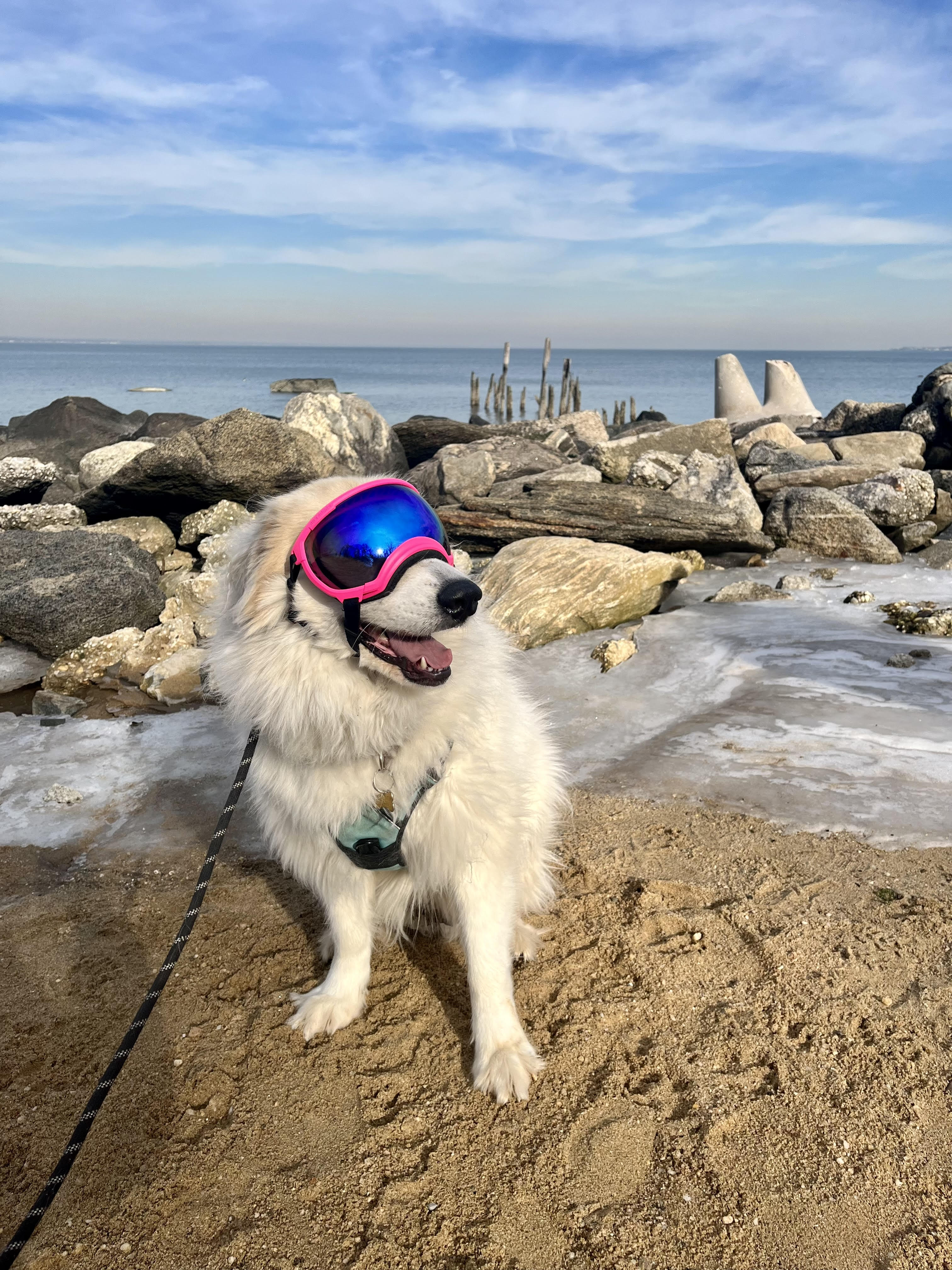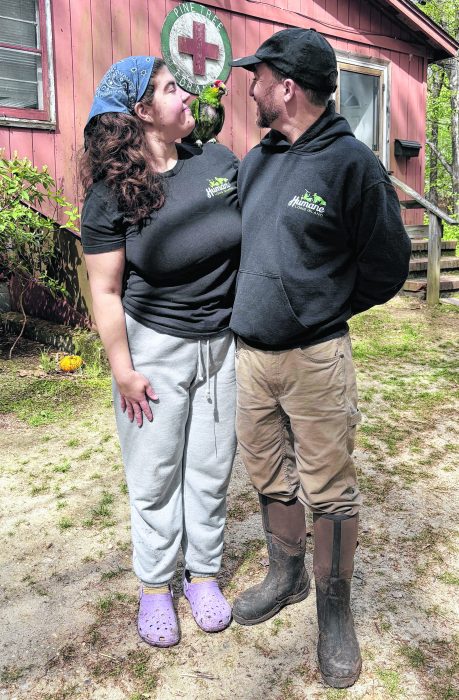As temperatures drop across Long Island this week and winter sets in, pet owners need to take extra precautions to ensure their furry companions remain safe and comfortable. The cold season poses unique risks, from frostbite and hypothermia to exposure to harmful substances like antifreeze. Here are some pet safety tips to help pet owners navigate these challenges and keep their pets healthy throughout the winter months.
Protect against cold weather hazards
Just like humans, pets can be vulnerable to extreme temperatures. Prolonged exposure to the cold can lead to frostbite, especially on areas like ears, tails and paws. Hypothermia is another serious concern.

Even breeds with thick fur coats are not immune to cold weather dangers. It’s a misconception that pets are more resilient to cold than humans. If it’s too cold for you, it’s likely too cold for them.
To protect pets, limit time outdoors during freezing temperatures. When outside, consider using pet-safe sweaters or jackets, particularly for smaller breeds or those with short fur. Booties are also beneficial for shielding paws from ice, salt and harsh chemicals used to melt snow.
Watch for signs of frostbite and hypothermia
Pet owners should stay alert for warning signs of frostbite, such as discoloration of the skin and pain in affected areas. Hypothermia symptoms include shivering, lethargy and a drop in body temperature. If these signs appear, immediate veterinary attention is critical.
Avoid harmful substances
Winter often brings an increased risk of exposure to toxins. Antifreeze, commonly used in cars, is highly toxic to pets but has a sweet taste that can attract them. Clean up any spills immediately and store antifreeze securely out of reach.
De-icing salts and chemicals used on roads and sidewalks can irritate a pet’s skin and paws or be ingested when they lick their feet. Use pet-safe ice melt products when treating your property and wipe down your pet’s paws with a damp cloth after walks to remove any residue.
Provide shelter and warmth
Shelter is essential for outdoor pets, such as farm animals or feral cats. Ensure outdoor animals have a warm, insulated space to protect them from the elements. Fresh, unfrozen water should be available at all times, as pets can’t hydrate by eating snow.
Indoor pets should have a cozy, draft-free area to rest. Keep beds and sleeping spots away from cold floors and doors.
Be mindful of holiday hazards
Winter also brings holiday celebrations, which can introduce new dangers for pets. Tinsel, ornaments and holiday plants like poinsettias and mistletoe can be harmful if ingested. Candles and electric decorations should be placed out of reach to prevent accidents.
Monitor pets closely during holiday gatherings, as unfamiliar guests and loud noises can cause anxiety. Set up a quiet space where pets can retreat if they feel overwhelmed.
Monitor diet and exercise
Cold weather often reduces outdoor activity, but exercise remains vital for maintaining a pet’s health. Indoor play sessions can help keep pets active.
Diet may also need adjustments in winter. Some pets may require additional calories to maintain body heat, while others—especially those less active—might need reduced portions to prevent weight gain. Consult your veterinarian for advice tailored to your pet’s specific needs.
Know the law
In Nassau County, laws require pet owners to provide adequate shelter and care for animals during extreme weather. Violators can face fines and penalties. The Nassau County SPCA encourages residents to report cases of neglect or abuse to their hotline (516-THE-SPCA).
Prepare for emergencies
Winter storms can lead to power outages or travel disruptions, so having an emergency kit for pets is crucial. Include food, water, medications, a blanket and any necessary supplies in a readily accessible location.
By following these guidelines, pet owners can ensure their animals remain safe and healthy throughout the winter. Winter can be a challenging time, but with proper care, pets can thrive even in the coldest months.
Visit the Nassau County SPCA website for more information and to report animal abuse.



































